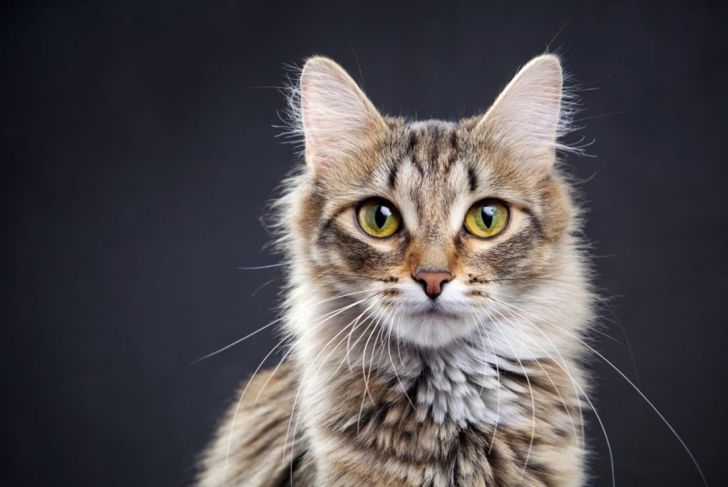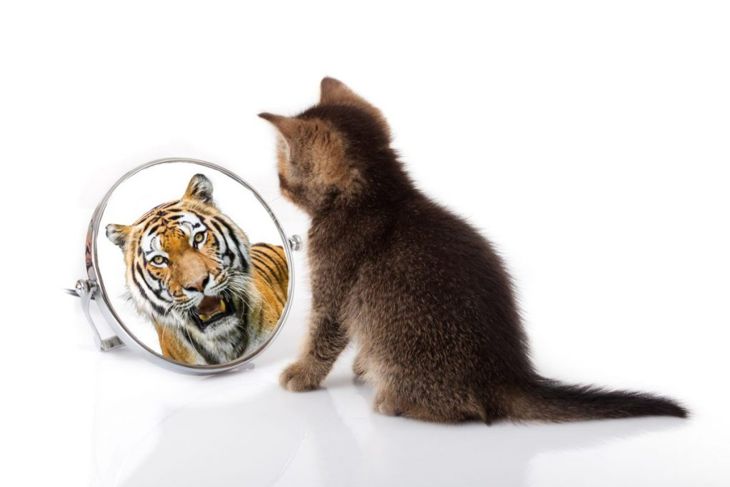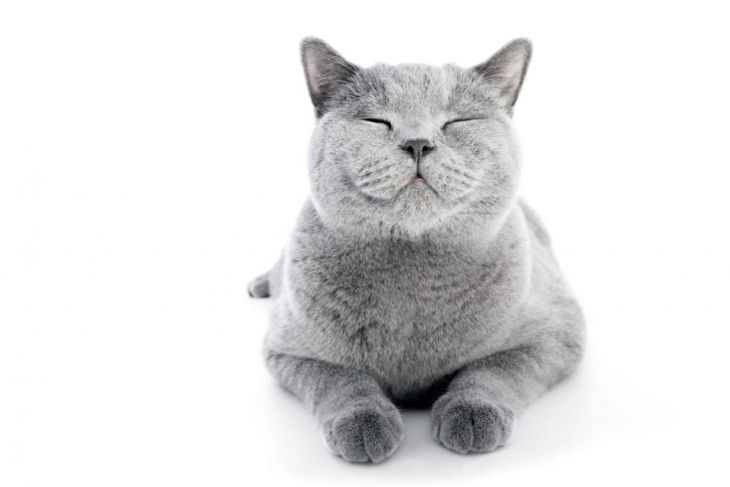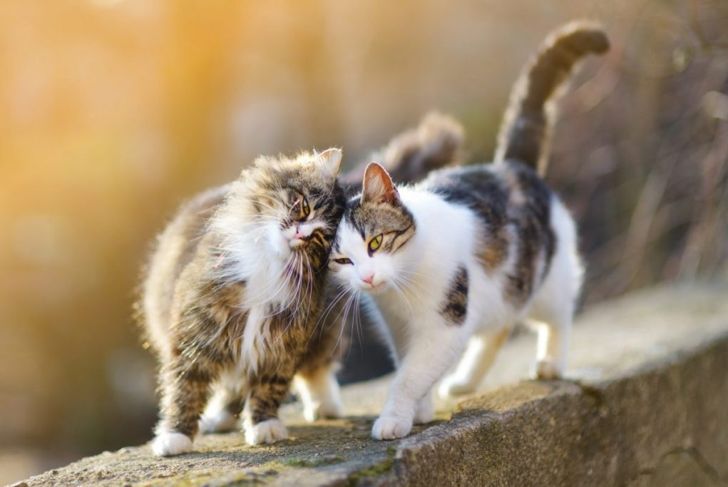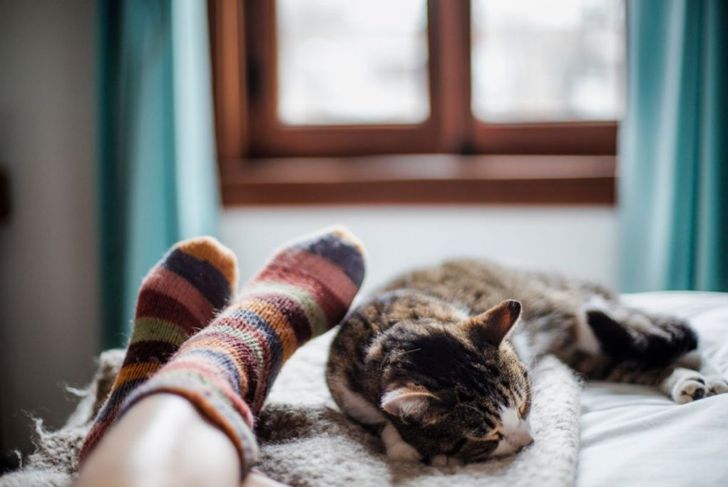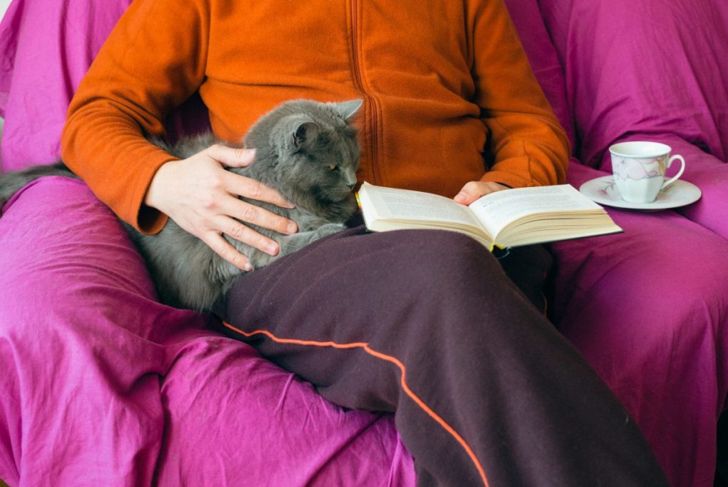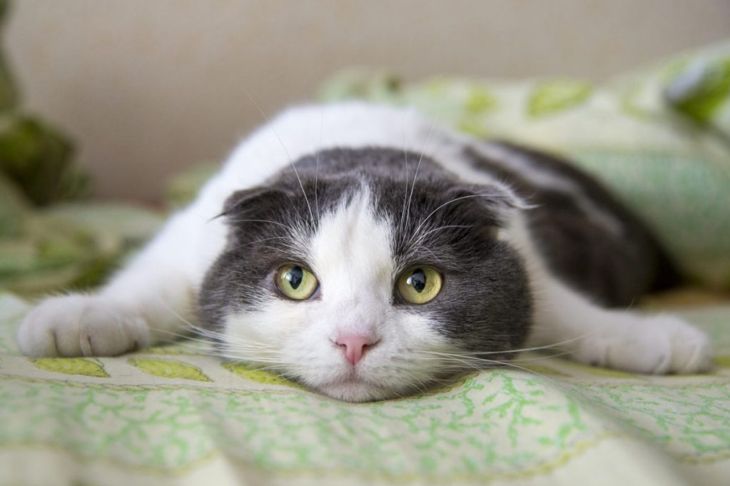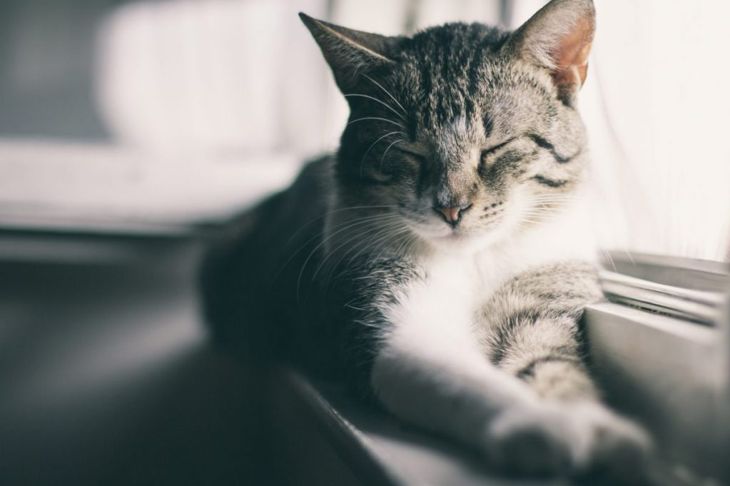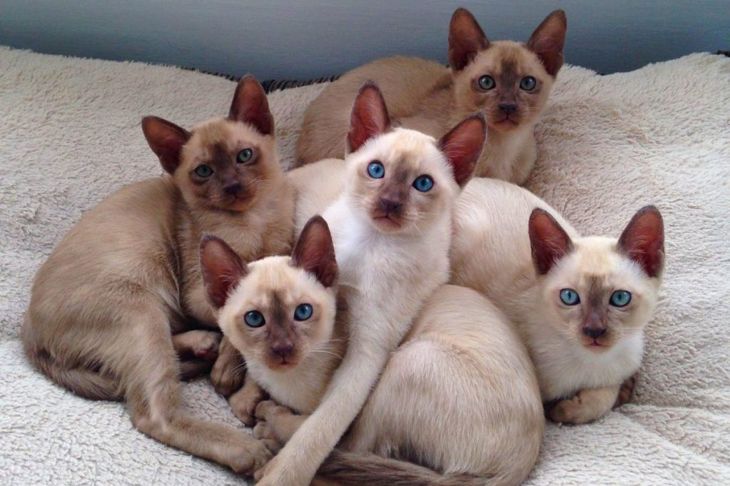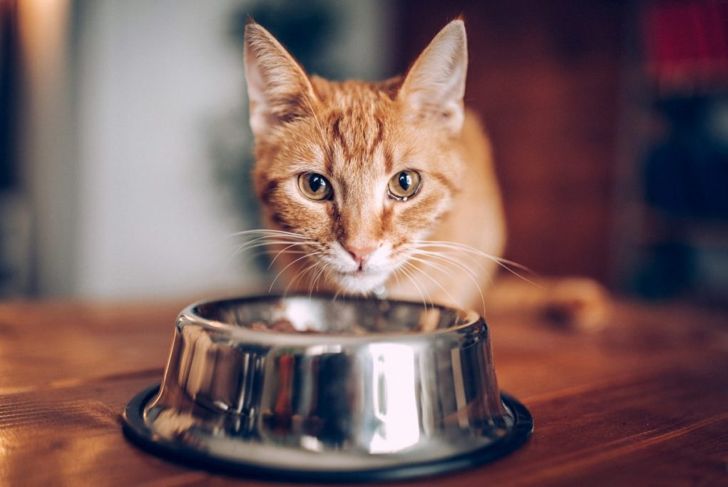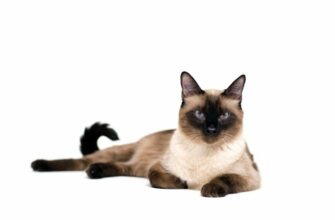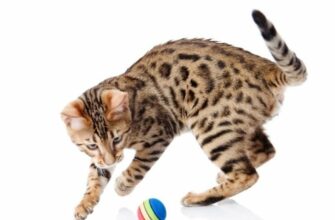The low-toned rumbling of a purring cat is a familiar sound and a comforting part of a happy home for their owners. A curled-up cat sitting purring on their lap is how lots of cat owners relax. Many people assume a purring cat is a happy animal, but that is not always the case. There are several reasons a cat might purr. By watching what other behaviors a cat exhibits you can understand the cause of the kitty’s purring, and if there is a cause for any concern.
How Cats Purr
Scientists used to think cat purring was due to vibrations in their hearts. And if you have felt a cat as it purrs you can see why they thought this, the purring rumble does seem to come from a cat’s chest. We now know purrs come from the cat’s larynx in the throat. The air vibrates every time the cat breathes in or out at 25 to 150 vibrations per second. This makes a purring sound.
Not Every Cat Purrs
As a general rule, small cats purr, but big cats roar. There are some larger wild cats like pumas and mountain lions that purr, but these cannot roar. It seems to be one or the other for cats. Although a few big cats that roar make purr-like noises, this is not true purring. None of the Patherinae family of cats; Tigers, Lions, Jaguars, Leopards, Snow Leopards, or Clouded Leopards really purr.
Purring For Joy
Humans smile and dogs wag their tails to show happiness. Purring is how cats show they are happy and is one of the most recognizable signs of a happy cat. The low rasping vibration sound of a purr is often heard when a cat is tickled or petted. Owners who have more than one cat might hear them purring to each other, and cats who are bonded to other animals like dogs will purr with them too.
Purring To Communicate
Cats start purring when they are just a few days old. The sound helps their mothers find them to keep them safe and also for feeding time. People have thought for decades that purring is a form of communication, but there have been few scientific studies in this area to say for certain. It’s likely that purring has a communication purpose. There is little understanding of how and why cats purr to one another in the wild. However, we know that cats purr as they groom each other.
Purring For Comfort
Cats sometimes purr if they have been startled, or after a stressful event such as being chased. Some cats also purr loudly as they are investigating new environments or strange places. Scientists think that cats who purr to themselves in these situations are self-soothing to try and stay calm. A human equivalent might be a man who hums to himself if he’s nervous, or a child sucking their thumb when she is afraid.
Healing Power Of Purrs
Purring evolved as a low-energy way for cats to keep their bones and body in good condition while they rest. The purr of a pet cat vibrates between 20 and 150 Hertz. Scientific research has shown that this frequency is medically therapeutic. Although the exact reason for this therapeutic effect is not fully understood, it is thought to be linked to cell repair and bone growth. The healing power of purring evolved to help the cats themselves, but humans can share in this healing ability when a purring cat is sitting on them. Purring has been proven to lower blood pressure in its owners, and may even reduce levels of the stress hormone cortisol too.
A Purring Cat Might Be Unhappy
Although purring is most often a sign of contentment for cats, it can also express nervousness, fear, and stress. To tell if a cat is feeling negative emotions; you have to observe its body language too. Cats may meow to humans, but most of their language is visual and smell-based. If a cat has wide eyes with big pupils or their ears are flattened, then they are unhappy and might be purring to comfort themselves. Thankfully, a purr is more often a sign of happiness.
Loudest Purr On Record
Some cat purrs are so quiet that you have to be close to the animal to hear it, while others are surprisingly loud. The loudest purr on record by a domestic cat was measured at 67.8 decibels, the same volume as a vacuum cleaner. This loud purr was achieved on 2 April 2015 by Merlin, who belongs to Tracy Westwood of the UK.
Some Breeds Purr More Than Others
The Tonkinese is a breed that likes to fetch, play outdoors and enjoy life. They are also known for being loud. This is a cat that likes for people to notice it, so it does what it can to talk above the crowd. It also has a very powerful purr that surprises people new to the breed. While you might think a larger domestic cat will also purr louder, that isn’t the case. In fact, the Maine Coon which is one of the largest domestic cat breeds has a very quiet purr.
Feed Me
When a cat is weaving between your feet then looking up at you and glancing towards their empty food bowl, that means “feed me!” Some cats also purr loudly when they are asking for food. Loud purring is used by many cats to wake up their human and to get breakfast. Many owners will feed the cat before themselves, which shows how effective a purr can be.

 Home
Home Health
Health Diet & Nutrition
Diet & Nutrition Living Well
Living Well More
More